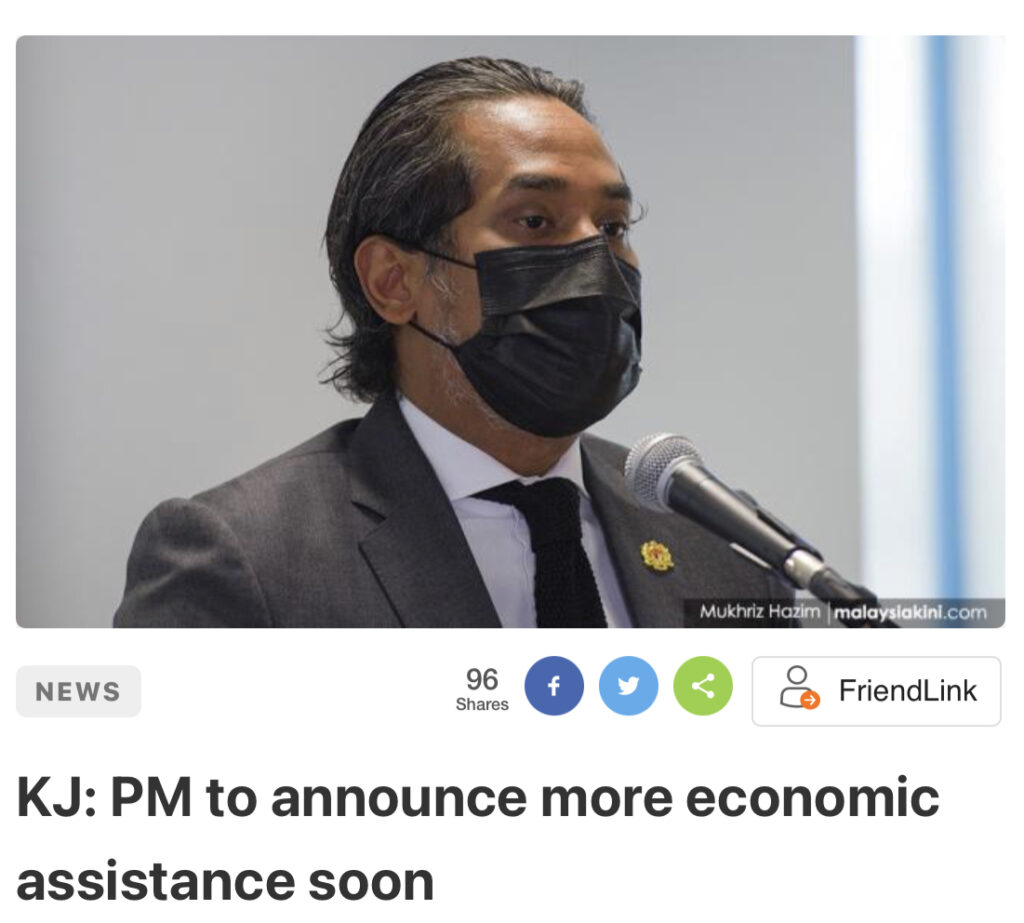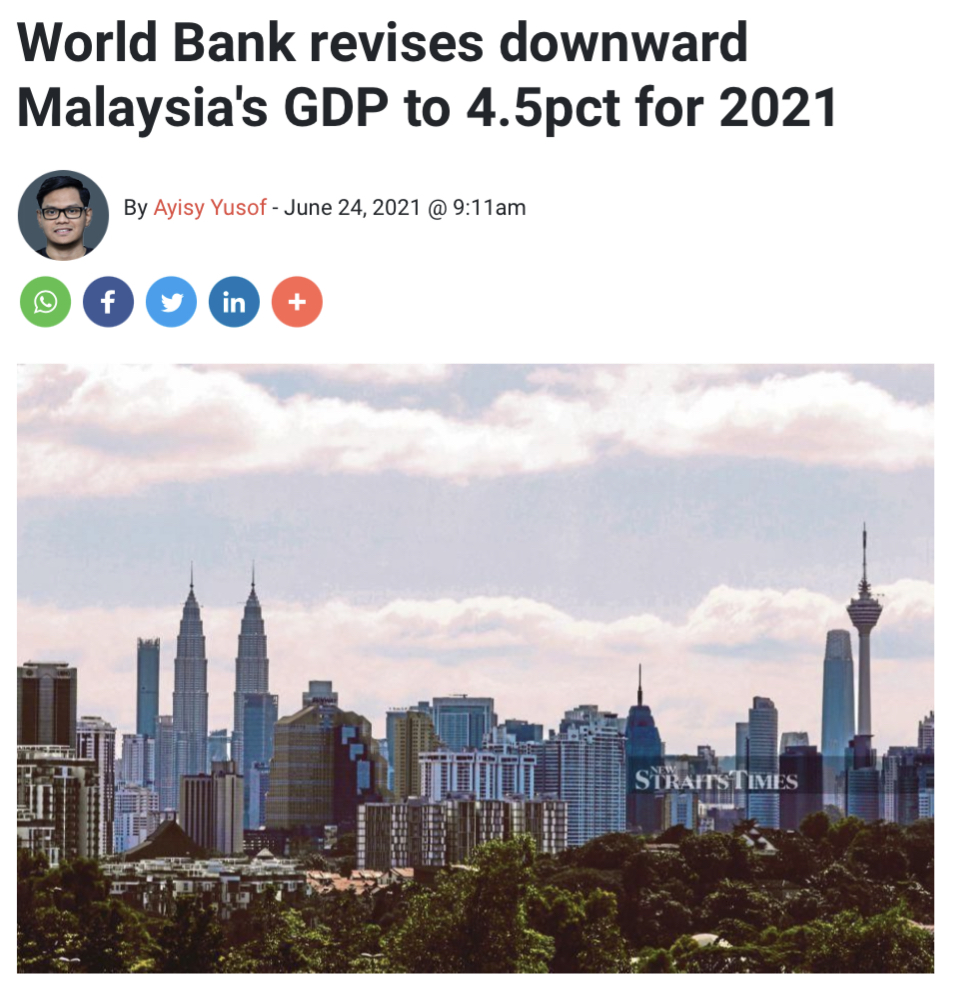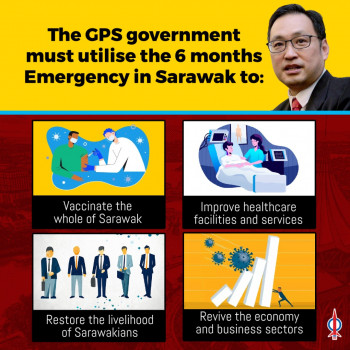Press statement by DAP Secretary-General and MP For Bagan, Lim Guan Eng in Kuala Lumpur on 25 June 2021:

Automatic Bank Loan Moratorium, Except For Top 20, And RM35 Billion In Direct Financial Aid Package To Save Jobs, Economic Livelihood And Businesses, Particularly SMEs
The long anticipated new economic stimulus package announced by Khairy Jamaluddin that will soon be revealed by the Prime Minister to deal with the latest total lockdown Movement Control Order, will be the eighth introduced by the PN government since February 2020. Direct fiscal injections so far are estimated at RM77.6 billion, grossly inadequate to deal with the hundreds of billions of ringgit in economic losses.

PH had proposed an automatic loan moratorium until end of the year, except for the Top 20, and an injection of RM45 billion in financial aid as soon as possible to save jobs, economic livelihood, and businesses. Out of this RM45 billion, at least RM35 billion must be reserved to help struggling businesses, particularly SMEs. 98.5% of business establishments in Malaysia are SMEs and the nearly 1 million SMEs contribute 39% to our country’s GDP in 2019.
The current economic recession has hit this critical sector particularly hard. The World Bank has not only revised downwards the growth projection from the PN government’s 6-7.5% for 2021 to 4.5%, but also highlighted the crisis for survival faced by many Malaysian companies. The World Bank added that Malaysian firms are less equipped to withstand shocks compared to their regional peers, with less cash in hand to face a crisis like Covid-19, as follows.
“Liquidity appears to be a pressing problem: a median Malaysian firm has only two months of cash flow available, while the average Malaysian firm has 4.9 months cash flow available which is lower than Indonesia 9.5 months and Vietnam’s 5.9 months cash flow available. In addition, 60 percent of firms are either in arrears or at risk of falling into arrears within the next six months. Firms appear to be less willing to borrow due to fear of repayment risks, with sellers also appearing less willing to provide credit.”
This latest World Bank Report is borne out by a survey by the Ministry of Entrepreneur Development and Cooperatives published on June 4 said more than 90% of micro, small and medium enterprises (MSMEs) risked closure, with 54% saying they could only survive three to six months and 72% expecting to suffer losses. The SME Association of Malaysia disclosed that 100,000 SMEs closed last year and 50,000 more are expected to suffer the same fate.

The PN government must urgently provide financial help in the form of automatic bank loan moratorium until end of the year, except for the top 20, and RM35 billion in rental, wage and utility subsidies; hiring and wage incentives to create new jobs as well as grants. The bank loan moratorium should be borne by a banking industry that recorded after-tax profits of more than RM 23 billion in 2020 and RM32.3 billion in 2019, and continues to earn healthy profits in the first quarter of 2021.
The PN government’s targeted bank loan moratorium has clearly failed because not all loan applications are approved. Even the loans to SMEs are not taken up due to their lack of capability to borrow. Finance Minister Tengku Zafrul Tengku Abdul Aziz revealed that on tourism financing, the government had an allocation of RM600 million for SMEs and micro SMEs that were still affected by Covid-19. Tengku Zafrul said that as of June 11, there were 669 applications, of which 331 applications were approved with a total funding of RM65.9 million, slightly more than 10%.
With only 10% of loan amount given out for the crippled tourism sector that lost RM100 billion last year, Malaysian companies, especially smaller and micro enterprises, are in deep trouble. Will the PN government rise to the challenge and offer an automatic bank loan moratorium and RM45 billion fund injection as required or continue disappoint until our growth prospects for this year dwindle and disappear



